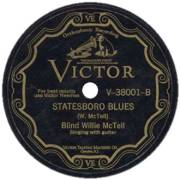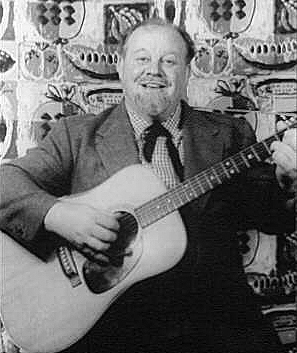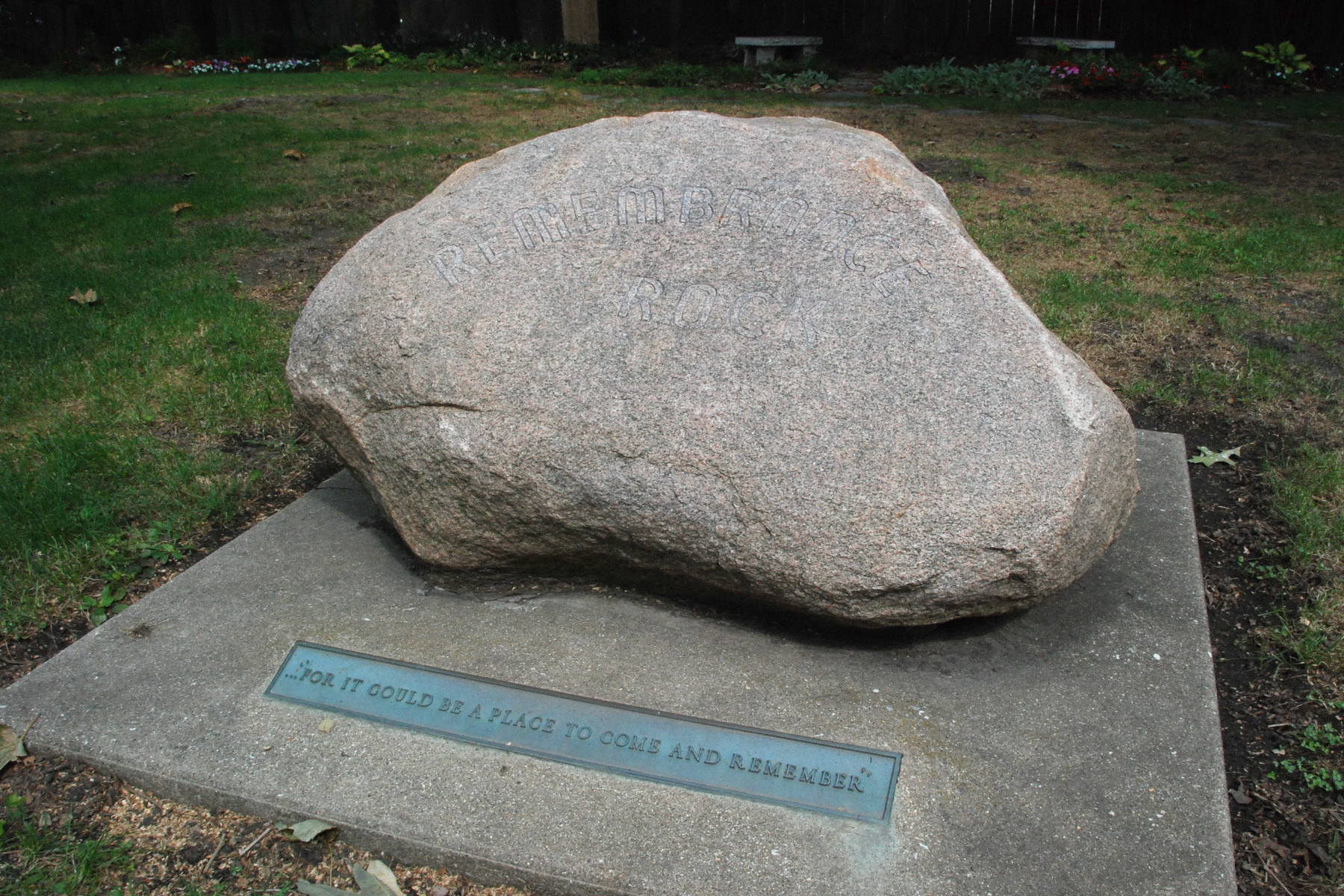|
Boll Weevil Song
"Boll Weevil" is a traditional blues song, also known by similar titles such as "Boweavil" or "Boll Weevil Blues". Many songs about the boll weevil were recorded by blues musicians during the 1920s through the 1940s. However, a rendition by Lead Belly recorded in 1934 by folklorist Alan Lomax led to its becoming well-known. A 1961 adaptation by Brook Benton became a pop hit, reaching number two on the ''Billboard'' Hot 100. Lyrics The lyrics deal with the boll weevil ''(Anthonomus grandis)'', a beetle, which feeds on cotton buds and flowers, that migrated into the U.S. from Mexico in the late 19th century and had infested all U.S. cotton-growing areas by the 1920s, causing severe devastation to the industry. Origins Perhaps as early as 1908, blues pioneer Charley Patton wrote a song called "Mississippi Boweevil Blues" and recorded it in July 1929 (as "The Masked Marvel") for Paramount Records. Some of the lyrics are similar to "Boll Weevil," describing the first time and "the ... [...More Info...] [...Related Items...] OR: [Wikipedia] [Google] [Baidu] |
Blues
Blues is a music genre and musical form which originated in the Deep South of the United States around the 1860s. Blues incorporated spirituals, work songs, field hollers, shouts, chants, and rhymed simple narrative ballads from the African-American culture. The blues form is ubiquitous in jazz, rhythm and blues, and rock and roll, and is characterized by the call-and-response pattern (the blues scale and specific chord progressions) of which the twelve-bar blues is the most common. Blue notes (or "worried notes"), usually thirds, fifths or sevenths flattened in pitch, are also an essential part of the sound. Blues shuffles or walking bass reinforce the trance-like rhythm and form a repetitive effect known as the groove. Blues as a genre is also characterized by its lyrics, bass lines, and instrumentation. Early traditional blues verses consisted of a single line repeated four times. It was only in the first decades of the 20th century that the most common c ... [...More Info...] [...Related Items...] OR: [Wikipedia] [Google] [Baidu] |
Blind Willie McTell
Blind Willie McTell (born William Samuel McTier; May 5, 1898 – August 19, 1959) was a Piedmont blues and ragtime singer and guitarist. He played with a fluid, syncopated fingerstyle guitar technique, common among many exponents of Piedmont blues. Unlike his contemporaries, he came to use twelve-string guitars exclusively. McTell was also an adept slide guitarist, unusual among ragtime bluesmen. His vocal style, a smooth and often laid-back tenor, differed greatly from many of the harsher voices of Delta bluesmen such as Charley Patton. McTell performed in various musical styles, including blues, ragtime, religious music and hokum. McTell was born in Thomson, Georgia. He learned to play the guitar in his early teens. He soon became a street performer in several Georgia cities, including Atlanta and Augusta, and first recorded in 1927 for Victor Records. He never produced a major hit record, but he had a prolific recording career with different labels and under different na ... [...More Info...] [...Related Items...] OR: [Wikipedia] [Google] [Baidu] |
Eddie Cochran
Ray Edward Cochran (; October 3, 1938 – April 17, 1960) was an American rock and roll musician. Cochran's songs, such as " Twenty Flight Rock", "Summertime Blues", " C'mon Everybody" and " Somethin' Else", captured teenage frustration and desire in the mid-1950s and early 1960s. He experimented with multitrack recording, distortion techniques, and overdubbing even on his earliest singles. He played the guitar, piano, bass, and drums. His image as a sharply dressed and attractive young man with a rebellious attitude epitomized the stance of the 1950s rocker, and in death he achieved iconic status. Cochran was involved with music from an early age, playing in the school band and teaching himself to play blues guitar. In 1954, he formed a duet with the guitarist Hank Cochran (no relation). When they split the following year, Eddie began a songwriting career with Jerry Capehart. His first success came when he performed the song "Twenty Flight Rock" in the film ''The Girl Can't He ... [...More Info...] [...Related Items...] OR: [Wikipedia] [Google] [Baidu] |
Ramblin' Jack Elliott
Ramblin' Jack Elliott (born Elliot Charles Adnopoz; August 1, 1931) is an American folk singer and songwriter. Life and career Elliott was born in 1931 in Brooklyn, New York, United States, the son of Florence (Rieger) and Abraham Adnopoz, an eminent doctor. His family was Jewish. He attended Midwood High School in Brooklyn and graduated in 1949. Elliott grew up inspired by the rodeos at Madison Square Garden, and wanted to be a cowboy. Encouraged instead to follow his father's example and become a surgeon, Elliott rebelled, running away from home at the age of 15 to join Col. Jim Eskew's Rodeo, the only rodeo east of the Mississippi. They traveled throughout the Mid-Atlantic states and New England. He was with them for only three months before his parents tracked him down and had him sent home, but Elliott was exposed to his first singing cowboy, Brahmer Rogers, a rodeo clown who played guitar and five-string banjo, sang songs, and recited poetry. Back home, Elliott taught h ... [...More Info...] [...Related Items...] OR: [Wikipedia] [Google] [Baidu] |
The Weavers
The Weavers were an American folk music quartet based in the Greenwich Village area of New York City originally consisting of Lee Hays, Pete Seeger, Ronnie Gilbert, and Fred Hellerman. Founded in 1948, the group sang traditional folk songs from around the world, as well as blues, gospel music, children's songs, labor songs, and American ballads. The group sold millions of records at the height of their popularity, including the first folk song to reach No. 1 on popular music charts, their recording of Lead Belly's "Goodnight, Irene." Despite their popularity, the Weavers were blacklisted during much of the 1950s. During the Red Scare, members of the group were followed by the FBI and blacklisted, with Seeger and Hayes called in to testify before the House Committee on Un-American Activities Seeger left the group in 1957. His tenor and banjo part was covered in succession by Erik Darling, Frank Hamilton and finally Bernie Krause until the group disbanded in 1964. History ... [...More Info...] [...Related Items...] OR: [Wikipedia] [Google] [Baidu] |
Norman Luboff
Norman Luboff (May 14, 1917 – September 22, 1987) was an American music arranger, music publisher, and choir director. Early years Norman Luboff was born in Chicago, Illinois in 1917. He studied piano as a child and participated in his high school chorus. Luboff studied at the University of Chicago and Central College in Chicago. Following this, he did graduate work with the composer Leo Sowerby while singing and writing for radio programs in Chicago. Luboff served in the U.S. Army's Signal Corps. In the mid-1940s, Luboff moved to New York City. Radio, TV and film With a call from Hollywood to be choral director of ''The Railroad Hour'', a radio weekly starring Gordon MacRae, Luboff began a successful career scoring many television programs and more than 80 motion pictures. He also recorded with artists such as Bing Crosby, Frank Sinatra, Jo Stafford, Frankie Laine and Doris Day. Publishing company In 1950, he established Walton Music Corporation, to publish his music. ... [...More Info...] [...Related Items...] OR: [Wikipedia] [Google] [Baidu] |
Burl Ives
Burl Icle Ivanhoe Ives (June 14, 1909 – April 14, 1995) was an American musician, actor, and author with a career that spanned more than six decades. Ives began his career as an itinerant singer and guitarist, eventually launching his own radio show, ''The Wayfaring Stranger'', which popularized traditional folk songs. In 1942, he appeared in Irving Berlin's '' This Is the Army'' and became a major star of CBS Radio. In the 1960s, he successfully crossed over into country music, recording hits such as "A Little Bitty Tear" and "Funny Way of Laughin'". Ives was also a popular film actor through the late 1940s and '50s. His film roles included parts in ''So Dear to My Heart'' (1948) and ''Cat on a Hot Tin Roof'' (1958), as well as the role of Rufus Hannassey in ''The Big Country'' (1958), for which he won an Academy Award for Best Supporting Actor. Ives is often associated with the Christmas season. He did voice-over work as Sam the Snowman, narrator of the classic 1964 Chris ... [...More Info...] [...Related Items...] OR: [Wikipedia] [Google] [Baidu] |
Tex Ritter
Woodward Maurice Ritter (January 12, 1905 – January 2, 1974) was a pioneer of American country music, a popular singer and actor from the mid-1930s into the 1960s, and the patriarch of the Ritter acting family (son John, grandsons Jason and Tyler, and granddaughter Carly). He is a member of the Country Music Hall of Fame. Early life Woodward Maurice Ritter was born on January 12, 1905, in Murvaul, Texas, to Martha Elizabeth (''née'' Matthews) and James Everett Ritter. He grew up on his family's farm in Panola County, Texas, and attended grade school in Carthage, Texas. He attended South Park High School in Beaumont, Texas. After graduating with honors, he entered the University of Texas at Austin in 1922 to study pre-law and major in government, political science, and economics. After traveling to Chicago with a musical troupe, he entered Northwestern Law School. Career Radio and Broadway An early pioneer of country music, Ritter soon became interested in show bu ... [...More Info...] [...Related Items...] OR: [Wikipedia] [Google] [Baidu] |
Buster Ezell
Buster may refer to: People First name * Buster Drayton (born 1952), American boxer *Buster Glosson, retired U.S. Air Force lieutenant general * Buster Mathis (1943–1995), American heavyweight boxer * Buster Mathis Jr. (born 1970), American heavyweight boxer, son of Buster Mathis *Buster Mills (1908–1991), American Major League Baseball outfielder, coach, scout and interim manager Surname * Buster (surname), a surname (including a list of people with the name) Nickname or stage name * Buster (nickname) * Buster Bloodvessel (born 1958), English singer of the ska revival band Bad Manners * Buster Brown (musician) (1911–1976), American blues and R&B singer *Buster Crabbe (1908-1983), Olympic swimmer and actor (real name Clarence Linden Crabbe II) *Dolly Buster, film producer and director, actress, author, and former porn star (born 1969) * Prince Buster, Jamaican musician (1938–2016) * Edward "Little Buster" Forehand, soul and blues musician * Buster Keaton (1895–1966), Am ... [...More Info...] [...Related Items...] OR: [Wikipedia] [Google] [Baidu] |
Woody Guthrie
Woodrow Wilson Guthrie (; July 14, 1912 – October 3, 1967) was an American singer-songwriter, one of the most significant figures in American folk music. His work focused on themes of American socialism and anti-fascism. He has inspired several generations both politically and musically with songs such as "This Land Is Your Land", written in response to the American exceptionalist song "God Bless America". Guthrie wrote hundreds of country, folk, and children's songs, along with ballads and improvised works. '' Dust Bowl Ballads'', Guthrie's album of songs about the Dust Bowl period, was included on '' Mojo'' magazine's list of 100 Records That Changed The World, and many of his recorded songs are archived in the Library of Congress. Songwriters who have acknowledged Guthrie as a major influence on their work include Bob Dylan, Phil Ochs, Johnny Cash, Bruce Springsteen, Robert Hunter, Harry Chapin, John Mellencamp, Pete Seeger, Andy Irvine, Joe Strummer, Billy ... [...More Info...] [...Related Items...] OR: [Wikipedia] [Google] [Baidu] |
Oscar Woods
Oscar, OSCAR, or The Oscar may refer to: People * Oscar (given name), an Irish- and English-language name also used in other languages; the article includes the names Oskar, Oskari, Oszkár, Óscar, and other forms. * Oscar (Irish mythology), legendary figure, son of Oisín and grandson of Finn mac Cumhall Places * Oscar, Kentucky, an unincorporated community * Oscar, Louisiana, an unincorporated community * Oscar, Missouri, an unincorporated community * Oscar, Oklahoma, an unincorporated community * Oscar, Pennsylvania, an unincorporated community * Oscar, Texas, an unincorporated community * Oscar, West Virginia, an unincorporated community * Lake Oscar (other) * Oscar Township, Otter Tail County, Minnesota, a civil township Animals * Oscar (bionic cat), a cat that had implants after losing both hind paws * Oscar (bull), #16, (d. 1983) a ProRodeo Hall of Fame bucking bull * Oscar (fish), ''Astronotus ocellatus'' * Oscar (therapy cat), cat purported to p ... [...More Info...] [...Related Items...] OR: [Wikipedia] [Google] [Baidu] |
Carl Sandburg
Carl August Sandburg (January 6, 1878 – July 22, 1967) was an American poet, biographer, journalist, and editor. He won three Pulitzer Prizes: two for his poetry and one for his biography of Abraham Lincoln. During his lifetime, Sandburg was widely regarded as "a major figure in contemporary literature", especially for volumes of his collected verse, including ''Chicago Poems'' (1916), ''Cornhuskers'' (1918), and ''Smoke and Steel'' (1920). He enjoyed "unrivaled appeal as a poet in his day, perhaps because the breadth of his experiences connected him with so many strands of American life". When he died in 1967, President Lyndon B. Johnson observed that "Carl Sandburg was more than the voice of America, more than the poet of its strength and genius. He was America." Life Carl Sandburg was born in a three-room cottage at 313 East Third Street in Galesburg, Illinois, to Clara Mathilda (née Anderson) and August Sandberg, Sandburg's father's last name was originally "Danielson ... [...More Info...] [...Related Items...] OR: [Wikipedia] [Google] [Baidu] |





